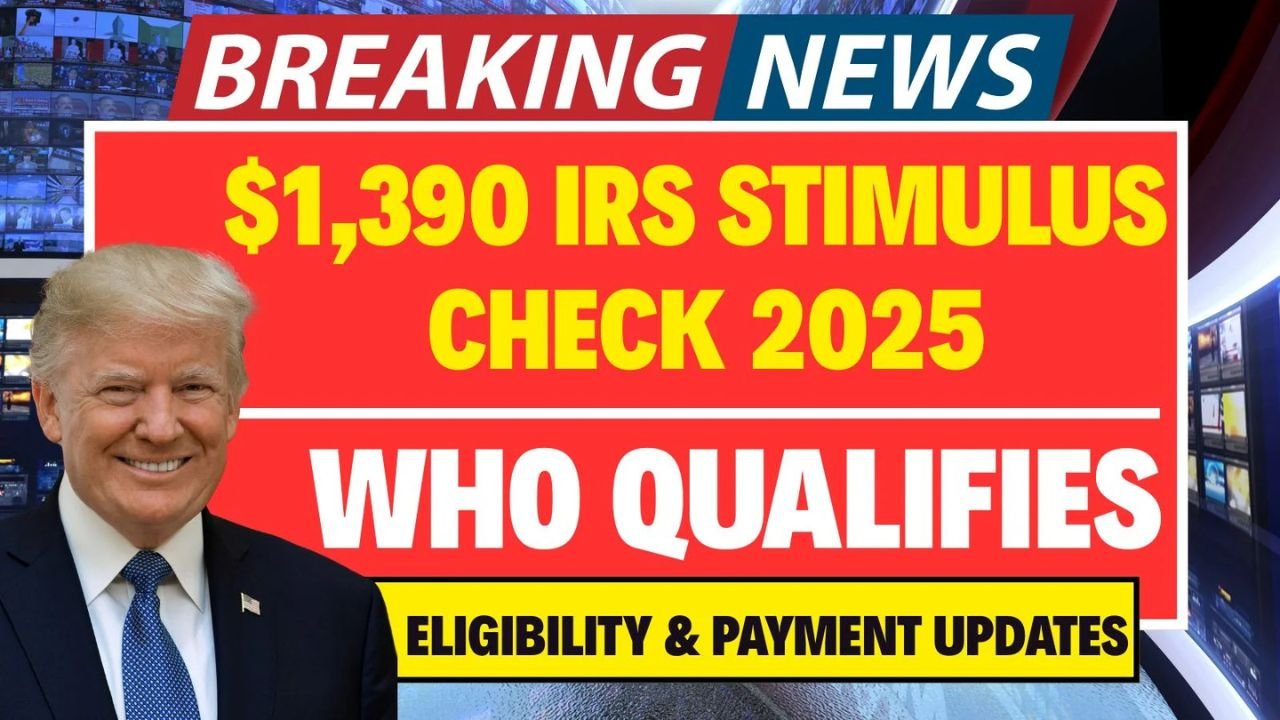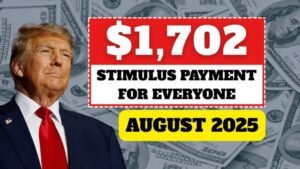Rumors have been spreading online about a new $1,390 stimulus check from the IRS for August 2025. Many people hoped this payment would help with rising costs. However, these claims are not true. This article explains the facts, clears up confusion, and tells taxpayers what to expect. We’ve simplified the information and included everything you need to know in plain English.
Why Are People Talking About a $1,390 Stimulus Check?
Social media posts and some online articles recently claimed that the IRS would send $1,390 stimulus checks to low- and middle-income families in August 2025. These posts suggested the payments would be tax-free and help with expenses like rent and food. Unfortunately, these claims are false. The IRS has confirmed that no such payments are planned for this summer.
The confusion may have started because of a few things:
- A proposal by Senator Josh Hawley called the American Worker Rebate Act, which suggested giving rebates using tariff revenue. This bill has not been passed by Congress.
- Earlier this year, the IRS sent out $2.4 billion in Recovery Rebate Credits to people who missed out on 2021 stimulus payments. Some might have mistaken this for a new stimulus program.
What Is the American Worker Rebate Act?
Senator Josh Hawley, a Republican from Missouri, introduced the American Worker Rebate Act in July 2025. This bill proposed giving at least $600 per person, plus extra for children, using money from tariffs. However, the bill is still in the Senate Finance Committee and has not become law. Without approval from both the Senate and House, no payments can happen.
The Truth About Stimulus Checks in 2025
The IRS does not have the power to send stimulus checks on its own. Any new stimulus payments need Congress to pass a law. In the past, stimulus checks were approved during major events like the 2008 recession and the COVID-19 pandemic. For example:
- 2008: The Economic Stimulus Act gave direct payments to help during the Great Recession.
- 2020–2021: Three laws (CARES Act, COVID-related Tax Relief Act, and American Rescue Plan Act) provided stimulus checks during the pandemic.
Right now, no new laws have been passed for 2025 stimulus checks. Claims about a $1,390 payment are not backed by any official IRS or Treasury Department statements.
What About the Recovery Rebate Credit?
Earlier in 2025, the IRS sent out about $2.4 billion to people who didn’t claim the Recovery Rebate Credit for 2021. This credit was worth up to $1,400 per person for those who missed COVID-era stimulus payments. However, the deadline to claim this credit was April 15, 2025. If you didn’t file your 2021 tax return by then, you can no longer get this money. This program is not related to new stimulus checks.
Why Are These Rumors Spreading?
Misinformation spreads easily, especially during tough economic times. People are struggling with high living costs, and false claims about stimulus checks can give false hope. Some reasons for the rumors include:
- Misunderstandings about Senator Hawley’s unpassed bill.
- Confusion with the 2021 Recovery Rebate Credit.
- Political discussions about tax rebates, like President Trump’s idea for a “DOGE Dividend” or tariff-funded rebates. These are just proposals, not laws.
The IRS has warned about scams related to stimulus checks. Always check official sources like irs.gov to avoid falling for fake news.
How to Avoid Stimulus Check Scams
Scammers often use fake texts, emails, or websites to trick people into sharing personal information. Here’s how to stay safe:
- Check Official Sources: Only trust updates from irs.gov or the Treasury Department.
- Don’t Share Personal Info: The IRS never asks for sensitive details like your Social Security number through email or text.
- Be Wary of Promises: If a website or post promises “free money,” it’s likely a scam.
What Can Taxpayers Expect in 2025?
While there are no federal stimulus checks planned for August 2025, some states are offering their own relief payments. For example:
- New York: Sending inflation relief checks of $200 for individuals earning up to $75,000 or $400 for married couples earning up to $150,000.
- Pennsylvania, Georgia, and Colorado: Offering similar rebate checks with different rules.
These are state programs, not federal stimulus checks. Check with your state’s tax or revenue department for details.
How to Track Your Tax Refund
If you’re waiting for a tax refund, you can check its status using the IRS’s Where’s My Refund? tool on irs.gov. You’ll need:
- Your Social Security Number (SSN) or Individual Taxpayer ID (ITIN).
- Your filing status (e.g., single, married).
- The exact refund amount from your tax return.
Refunds usually arrive within 21 days if you filed electronically with direct deposit. Paper returns or mailed checks may take 6–8 weeks.
Common Reasons for Refund Delays
| Reason | Explanation |
|---|---|
| Incorrect Information | Mistakes on your tax return can slow processing. |
| Identity Verification | The IRS may need to confirm your identity to prevent fraud. |
| Specific Credits | Claims like the Earned Income Tax Credit need extra review. |
| Bank Processing | Some banks take longer to deposit funds. |
Could More Stimulus Checks Happen?
There’s always a chance that Congress could pass new laws for stimulus payments, especially during economic hardships. Proposals like Senator Hawley’s American Worker Rebate Act or President Trump’s tariff rebate ideas could lead to future payments, but nothing is confirmed for 2025. Taxpayers should stay updated through trusted sources like irs.gov.
Key Terms Explained
| Term | Simple Explanation |
|---|---|
| Stimulus Check | Money sent by the government to help people spend and boost the economy. |
| Recovery Rebate Credit | A tax credit for those who missed earlier stimulus payments. |
| Tariff | A tax on imported goods, sometimes used to fund rebates. |
| Economic Impact Payment | Another name for stimulus checks, approved by Congress. |
Conclusion
The rumors about a $1,390 IRS stimulus check for August 2025 are false. No new federal stimulus payments are scheduled, and any claims otherwise are not backed by the IRS or Congress. The confusion may come from unpassed proposals or the 2021 Recovery Rebate Credit, which had a deadline of April 15, 2025. To avoid scams, always verify information on irs.gov. Some states are offering their own relief checks, so check with your state government for details. If you’re waiting for a tax refund, use the IRS’s Where’s My Refund? tool to track it. Stay informed and cautious to protect your money and personal information.




